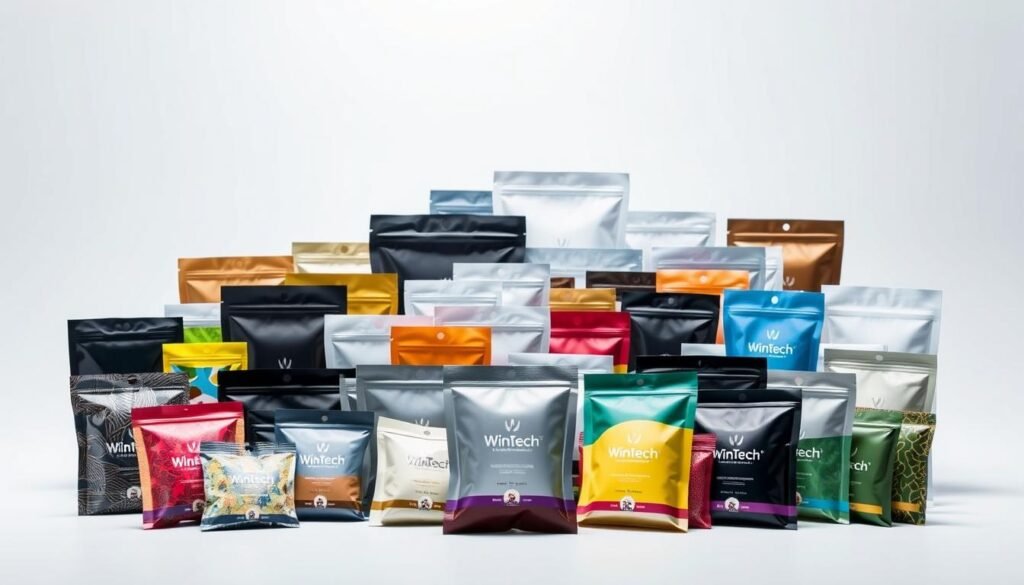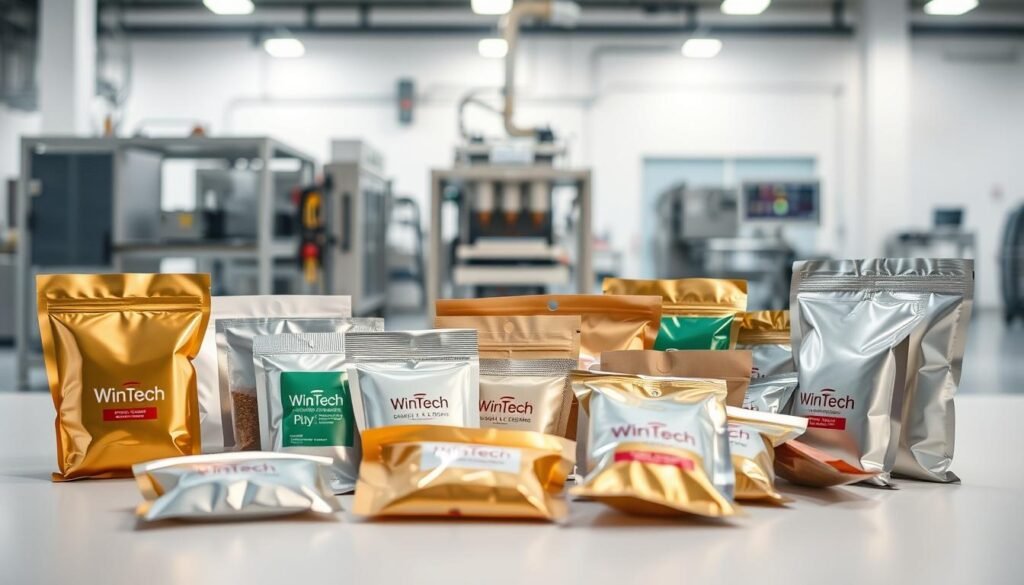Have you ever wondered how brands capture your attention with innovative packaging? Sachets have become a growing trend in the US market, offering a unique way for companies to enhance customer experience and promote their products.
So, what are sachets? Essentially, they are small, single-serve packets containing a product sample or a travel-sized version of a larger item. The uses of sachets vary across industries, from beauty and personal care to food and beverages, providing an effective means for brands to engage with their audience.
As the demand for sachet packaging continues to rise, understanding what are sachets and the different types of sachets and their benefits becomes crucial for businesses aiming to leverage this trend.
Key Takeaways
- Discover the growing popularity of sachet packaging in the US market.
- Learn about the various uses of sachets across different industries.
- Understand the benefits of sachets for customer acquisition and product trial.
- Explore the different types of sachets and their applications.
- Find out how sachets can enhance brand presence and customer engagement.
What are sachets? An Overview of Their Benefits
As a packaging solution, sachets provide a unique combination of functionality and branding opportunities. You can leverage sachets to enhance your product’s appeal while benefiting from their practical advantages. Sachets are known for their low environmental footprint, efficient manufacturing process, and high barrier protection, making them an attractive option for businesses looking to reduce their ecological impact.

Understanding what are sachets and Their Uses
Sachets are small, sealed bags or packets used for packaging a variety of products, including food, beverages, cosmetics, and pharmaceuticals. You can use sachets to offer samples, single servings, or travel-sized products, enhancing customer convenience and product accessibility. The versatility of sachets allows businesses to cater to diverse consumer needs, from on-the-go packaging to portion control.
The Market Demand for what are sachets
The demand for sachets is on the rise, driven by consumer preferences for convenient, portable, and sustainable packaging. You can capitalize on this trend by incorporating sachets into your product lineup, thereby attracting environmentally conscious consumers and those seeking ease of use. The growing popularity of sachets is also influenced by their cost-effectiveness and the ability to customize them with branding elements.
Applications of what are sachets in Various Industries
Sachets are utilized across multiple industries due to their adaptability and the benefits they offer. In the food and beverage sector, sachets are used for packaging condiments, spices, coffee, and tea. The beauty and personal care industry employs sachets for sample-sized products, such as shampoos, lotions, and creams. Additionally, sachets are used in the pharmaceutical industry for packaging medications and supplements. You can explore these applications to identify opportunities for using sachets in your business, enhancing product presentation and customer engagement.
What are sachets? Customization Options for Your Brand
In the world of packaging, what are sachets and how can they be tailored to fit your brand’s unique needs? Sachets are an innovative and versatile packaging solution that can be customized to enhance your brand’s presence in the market. Understanding what are sachets and their customization options is crucial for businesses looking to make a lasting impression.

Designing Sachets for Maximum Impact
Designing what are sachets for maximum impact involves more than just aesthetics; it’s about creating a packaging solution that resonates with your target audience. You can customize sachets with various designs, materials, and sizes to fit your brand’s identity. For instance, using eco-friendly materials can appeal to environmentally conscious consumers.
- Choose materials that align with your brand values.
- Select designs that appeal to your target audience.
- Consider the size and shape that best suits your product.
By focusing on these aspects, you can create sachets that not only protect your product but also enhance your brand’s image.
The Importance of Branding in Sachets
Branding is a critical aspect of what are sachets. Your sachet’s design and packaging can significantly influence consumer perception and loyalty. Effective branding on sachets can increase brand recognition and make your product stand out on crowded shelves.
To leverage branding in sachets, consider the following:
- Use your brand’s color scheme and logo prominently.
- Ensure the design is consistent across your product line.
- Incorporate unique selling points or product benefits.
Case Studies: Successful Use of Sachets
Several brands have successfully utilized sachets to enhance their brand presence and customer engagement. For example, in the beauty and personal care industry, sachets are used for sampling products, allowing consumers to try before they buy.
| Industry | Use of Sachets | Benefits |
|---|---|---|
| Beauty and Personal Care | Product Sampling | Increased customer engagement and reduced product waste. |
| Food and Beverage | Portion Control | Convenience and reduced packaging waste. |
By understanding what are sachets and their applications, you can make informed decisions to boost your brand’s visibility and appeal.
What are sachets? The Production Process Explained
Sachets are produced through a meticulous process that involves selecting the right materials and ensuring quality control. Understanding this process is key to appreciating the value that sachets can bring to your business, from packaging to branding.
Materials Used in Sachet Production
The materials used in sachet production vary depending on the intended use, product compatibility, and brand requirements. Common materials include foil, plastic, and paper, each offering different benefits such as barrier protection, flexibility, and eco-friendliness.

When choosing materials for your sachets, it’s essential to consider factors such as product shelf life, brand image, and environmental impact.
Quality Control Measures
Quality control is a critical aspect of sachet manufacturing. This involves checking for defects, ensuring the correct filling of sachets, and verifying that packaging meets the required standards.
Effective quality control measures help maintain consistency and customer satisfaction. By ensuring that your sachets are manufactured with high-quality materials and processes, you can build trust with your customers and enhance your brand reputation.
Sustainable Practices
Sustainability is becoming increasingly important in packaging. Manufacturers are adopting sustainable practices such as using biodegradable materials, minimizing waste, and optimizing production processes to reduce environmental impact.
Choosing sachets made with sustainable practices can enhance your brand’s eco-friendly image. By considering the environmental footprint of your packaging, you can appeal to environmentally conscious consumers and contribute to a more sustainable future.
What are sachets? How to Choose the Right Supplier
When exploring the sachet market, selecting the right supplier is crucial for your business success. Understanding what are sachets and their various types is essential in making an informed decision. A reliable supplier can provide high-quality sachets that meet your specific needs, whether it’s for product sampling, branding, or packaging.
Key Considerations for Supplier Evaluation
To evaluate potential suppliers, consider their experience in the industry, production capabilities, and quality control measures. You should also assess their ability to provide customized sachets that align with your brand identity. Knowing the sachet definition and its applications can help you ask the right questions when evaluating suppliers.
Building Long-Term Relationships
Establishing a long-term relationship with your sachet supplier can lead to benefits such as improved product quality, competitive pricing, and priority service. By understanding the different types of sachets and their uses, you can work closely with your supplier to meet your evolving business needs.
